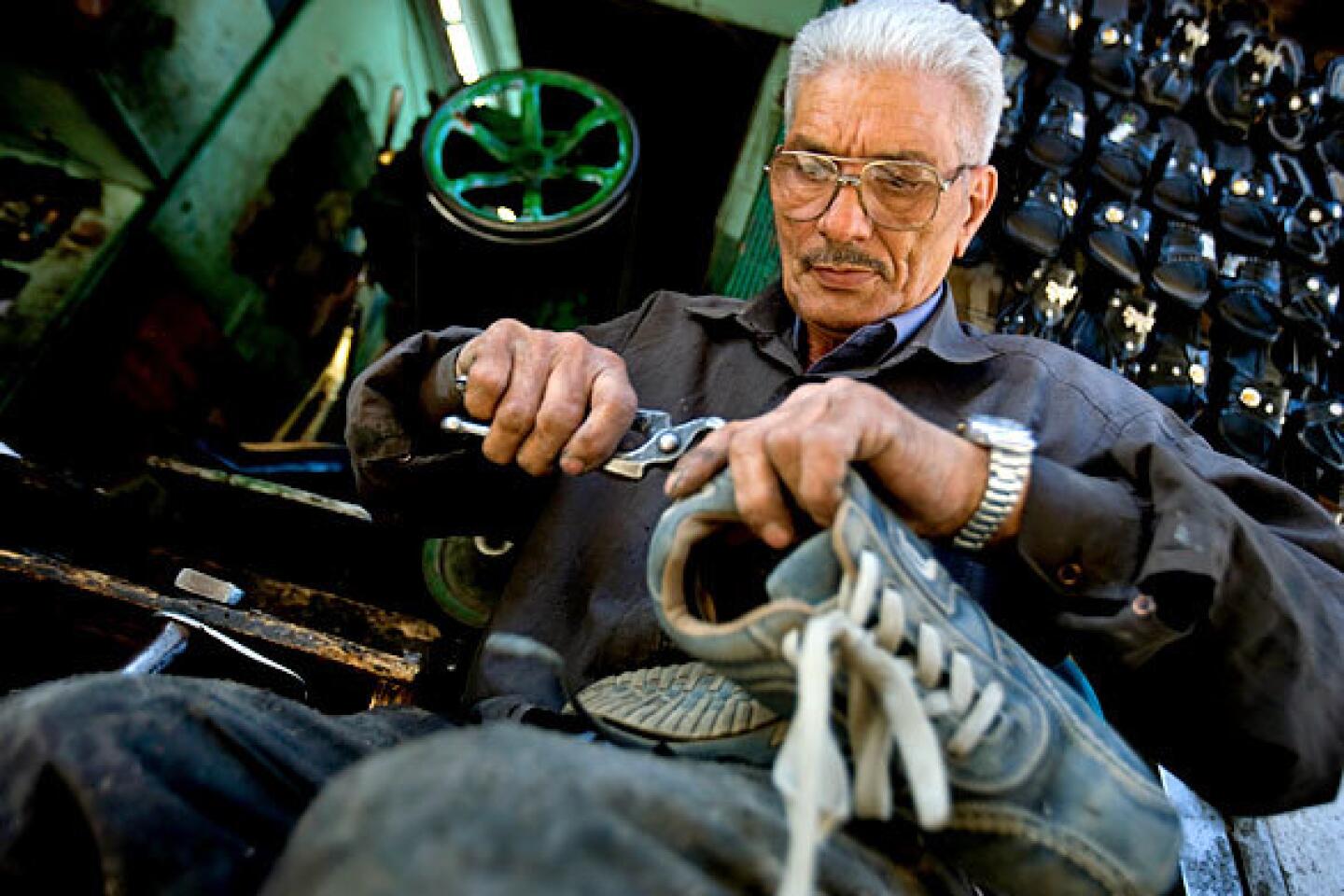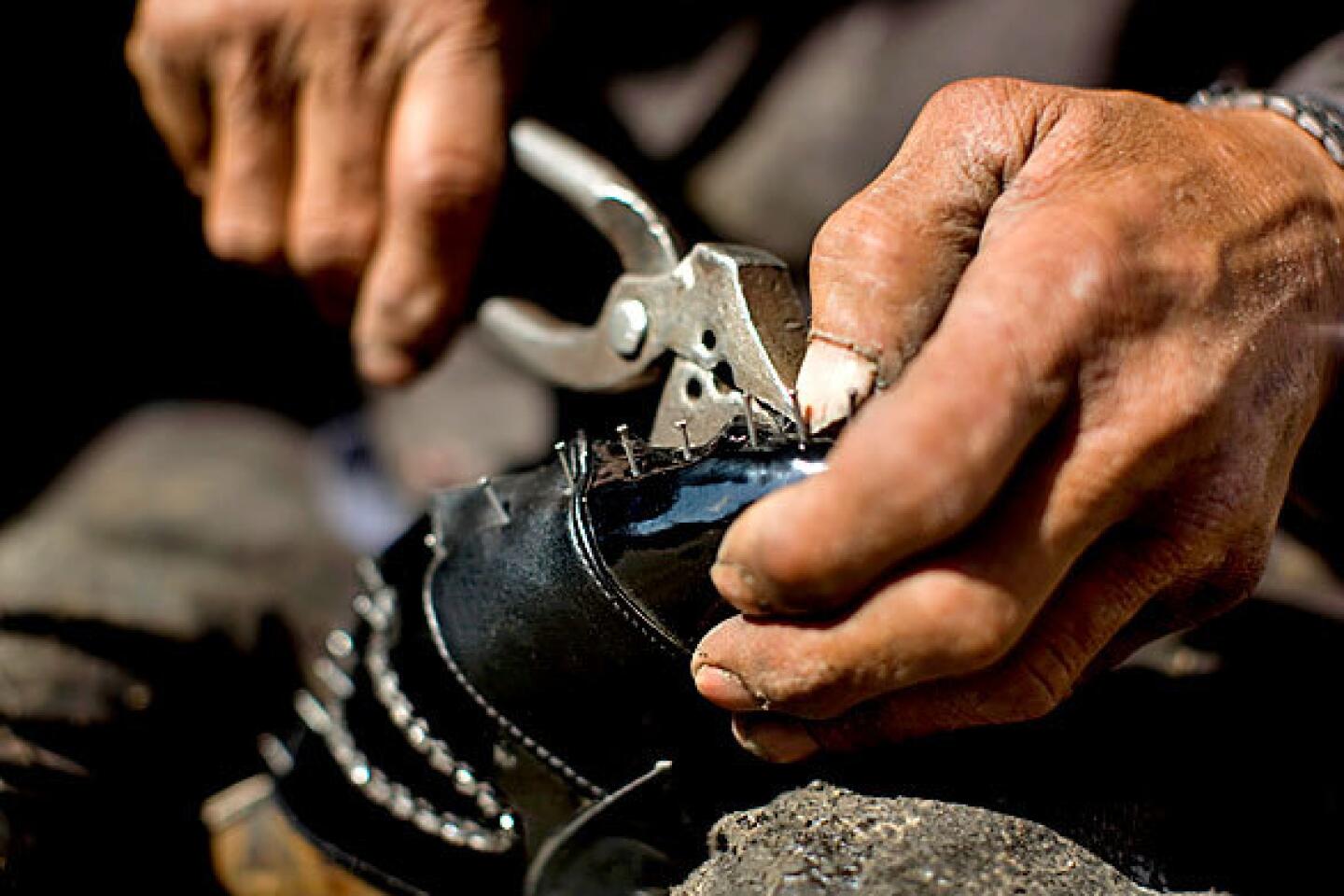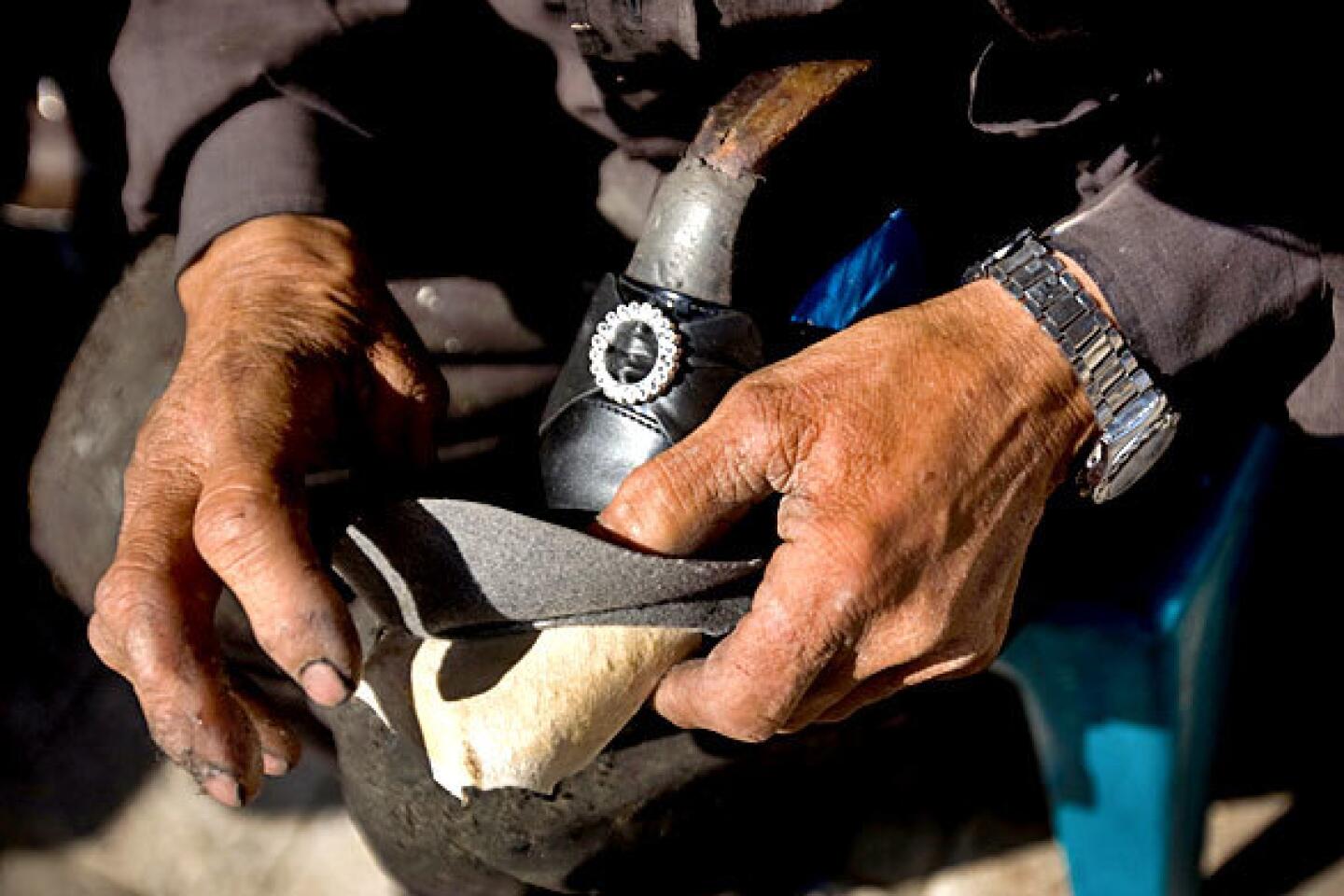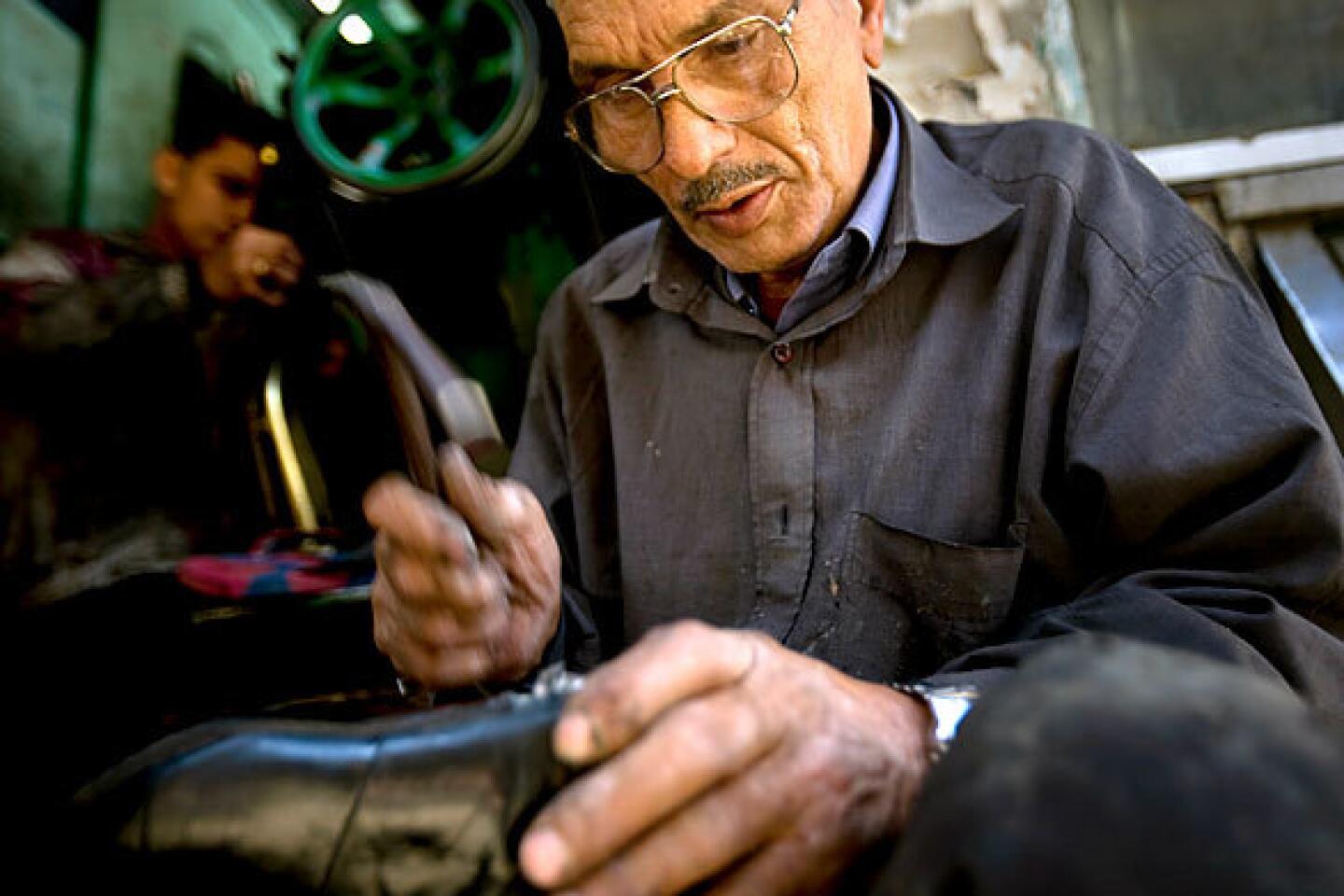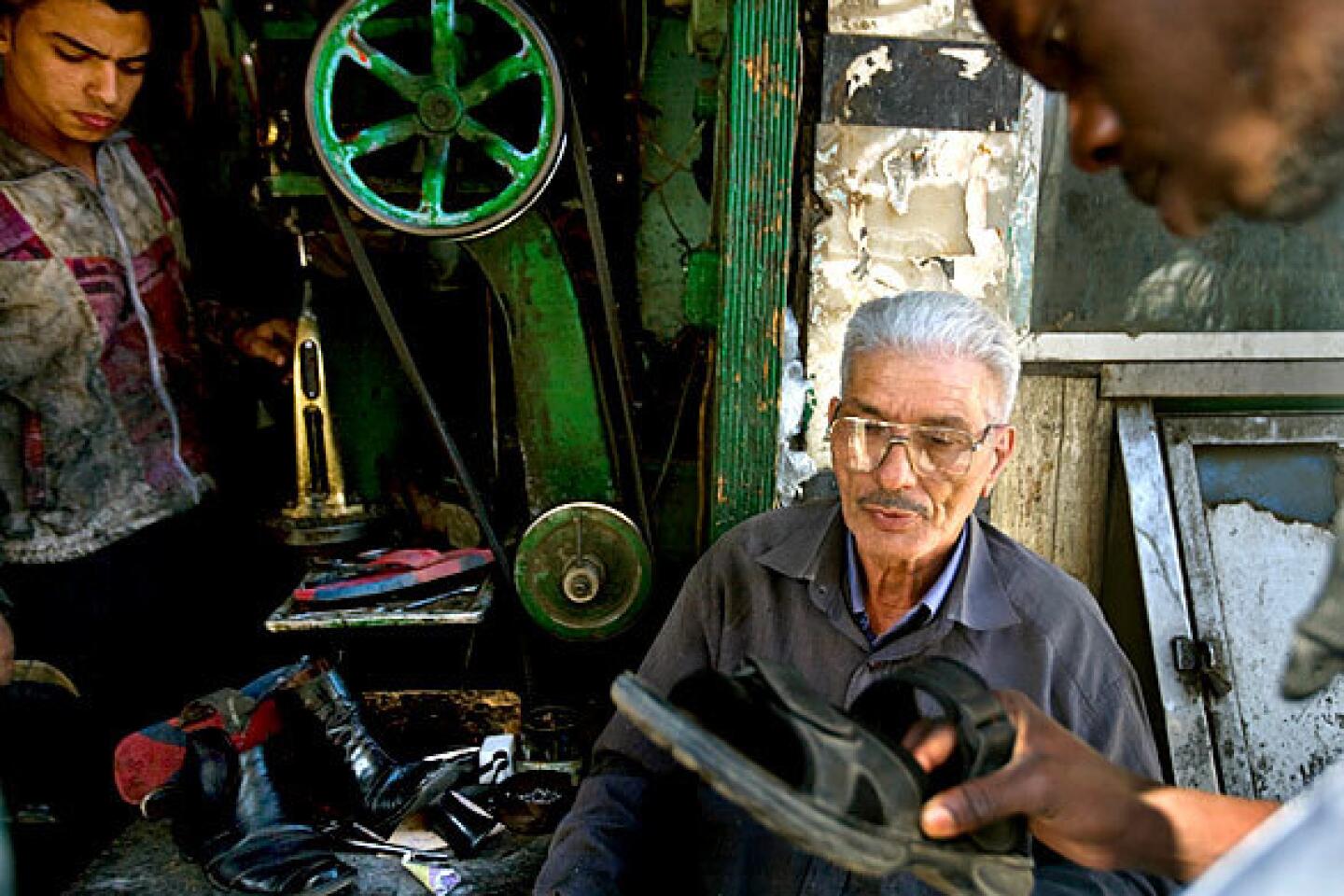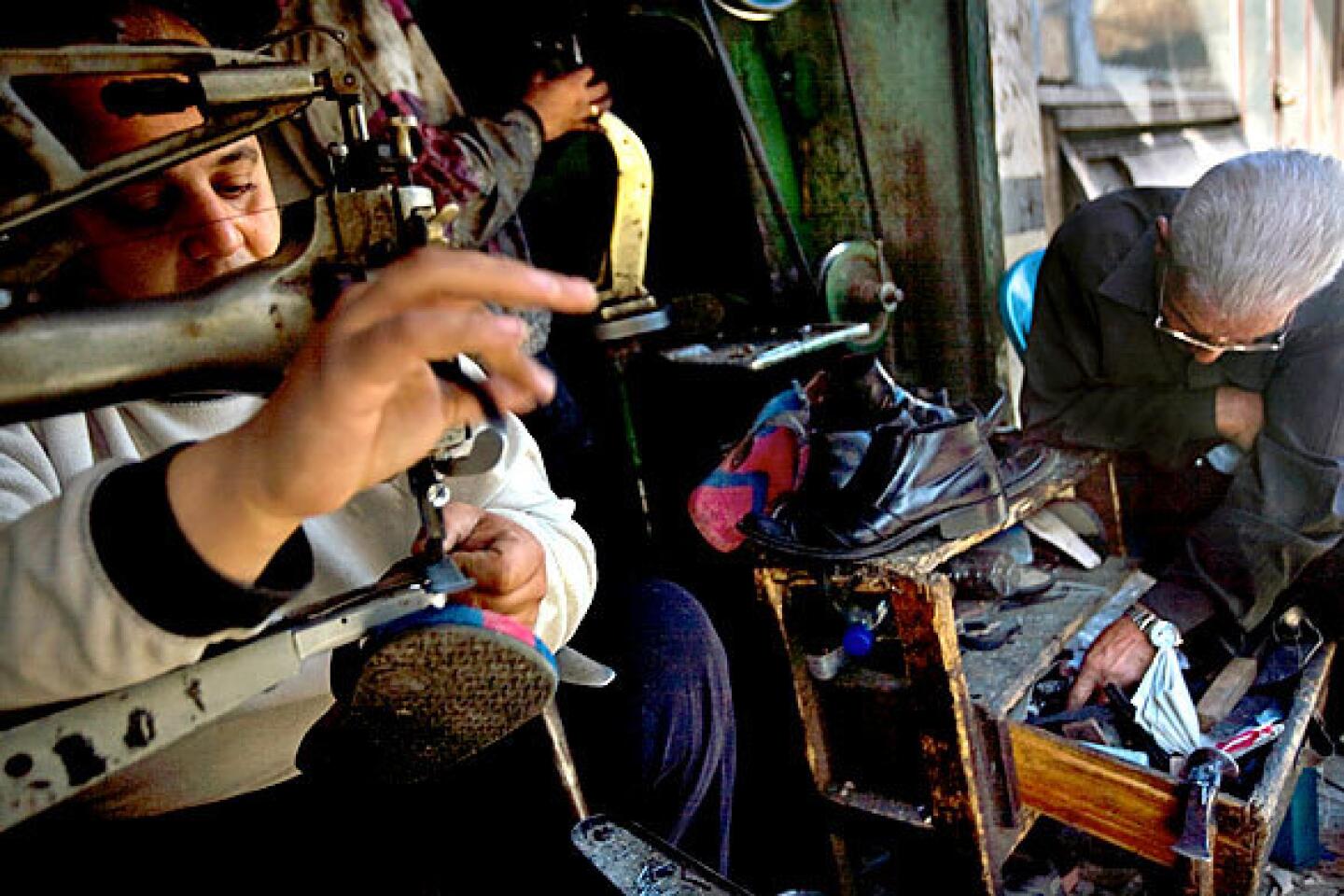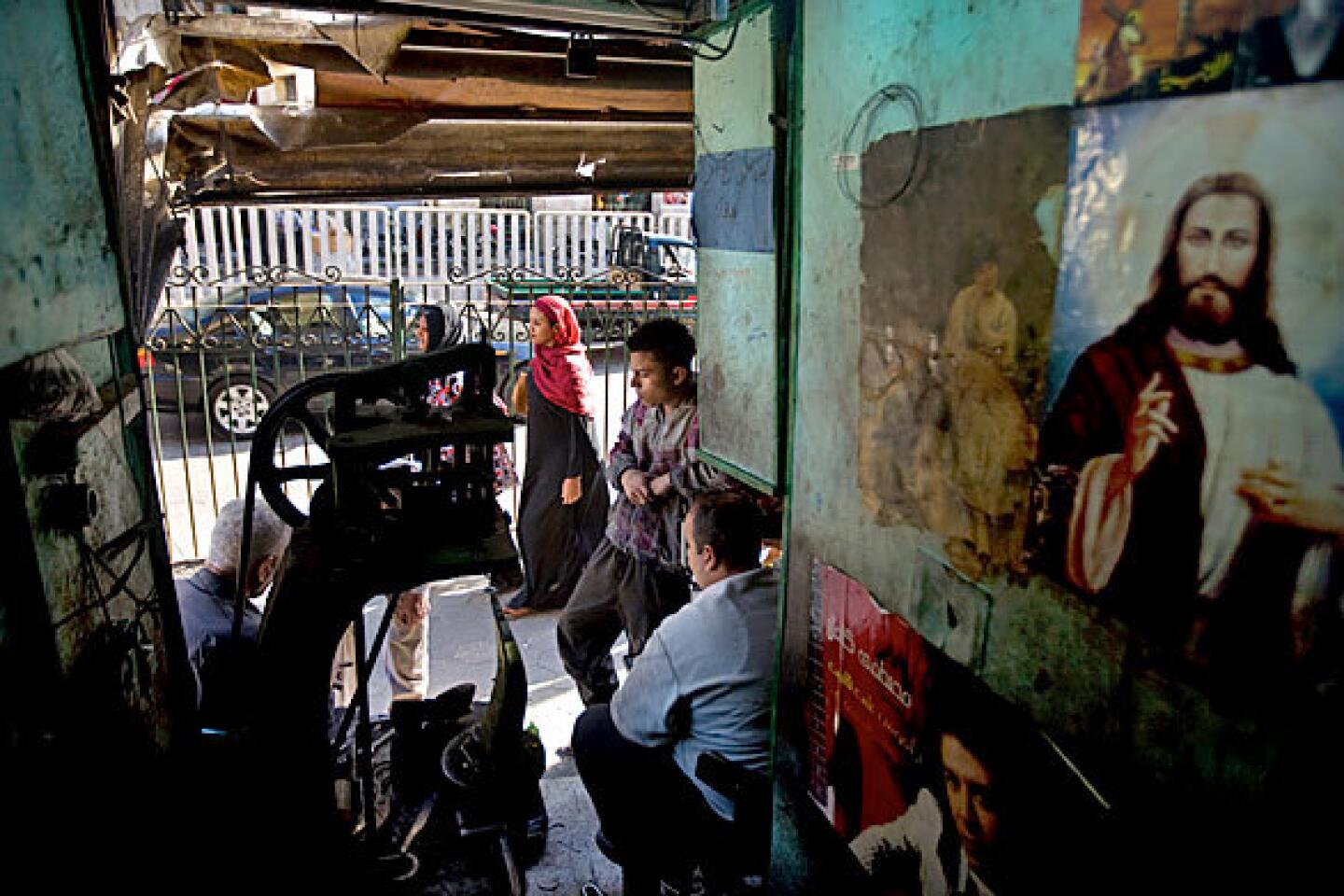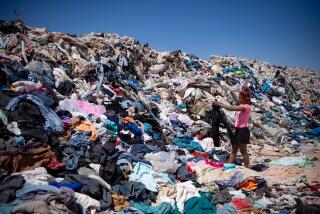Shoemakers know Egypt’s down at heel
Two shoemakers, one with white hair, the other much younger, hammer and sew beneath the torn awning of their shop in a downtown bazaar.
“When I first started working here, he wasn’t even in this world,” says the older one, nodding toward the younger.
“You’ve been here since 1959,” says the younger one, squinting and running thread through a silver sewing machine. “You put my grandfather and my father in their graves, and I hope you don’t put me in mine.”
The older one ponders that possibility. A woman arrives, sweating in the heat, strong personality, thrusting out a stout heel on a rhinestone-studded shoe that looks as if it had walked all the way from a boulevard in Paris. The older one takes it, peels back the inner sole, grabs a few nails and starts whacking.
Crack.
“You broke it,” says the woman.
“No, I didn’t break it, it was already broken,” says the older shoemaker, squinting through the smoke of his Cleopatra cigarette. “Plastic. Used to be shoes were made all of leather. Didn’t break so easily.”
The woman huffs and spins away, says she’ll be back.
Shoes can tell you a lot about a country’s mood and its economy.
“I’d say 80% of our customers want shoes fixed that should have been thrown away long ago,” says the younger shoemaker. “They come, take their shoes off and stand in their socks and wait. They have to. They only own one pair of shoes. It used to be people would bring shoes here and forget about them. Every month we’d throw away bags of shoes. No more. People are too poor these days to forget about a pair of worn-out shoes.”
“I repair them on the spot,” says the older shoemaker, forgetting that his cigarette is burning on a hammering stool and, after frisking himself for matches, lighting another one.
There’s a lot of day left. The sun is edging above the minarets, reaching into the alleys of the bazaar that smell of perfume, onions, cut mint, ginger and car exhaust. It’s that grind, that pulse that happens a few times a day, when even this chaotic metropolis finds more energy: Horns wail, minibuses screech and police stop using their whistles because who’s paying attention anyway?
The older shoemaker, Fouad Bekheet, is stained faint black like a coal miner after a shower. His trousers are coated with dried glue; they could stand on their own, like armor. His fingers are knotted and crooked, as if each is heading in its own direction, but when he works they are nimble. He is 65 and has been repairing shoes since he was 10; back then that’s what poor boys did.
The younger shoemaker, Hani Karam, is heavyset; big shoes seem small in his hands. He sits behind the Singer machine as if he’s steering the shop, a grimy-walled box about the size of an outhouse, through a storm. He comes from a family of shoemakers, a “kind of syndicate,” he says, and when the job fell to him he didn’t have much of a say, with a ninth-grade education and a family to support. There is sweat in his beard.
To repair a sole costs 17 cents.
To fix a heel runs about a nickel less.
“You can hardly sustain a family,” Karam says.
A man appears, slipping a pair of white loafers out of a plastic bag. They are beaten at the heels, curled up at the toes; shoes that have been danced in, that once glowed like moonlight, but shoes that when seen on the street now raise the question: “What is this guy selling?”
Karam examines them, flips them over, bites his lower lip.
“I’ve learned patience,” Bekheet says. “I forgive young shoemakers who get nervous and aggressive. It’s hard today, everybody’s running around trying to earn a living. The country’s tough and people are worried. Too much tension. You have to speak calmly to the agitated, that’s what settles them down.”
Bekheet sharpens a shiv on a flint rock. He puts it down near scissors, pinchers and a scattering of nails that look like thrown stars on his workbench, which isn’t really a bench but a rounded piece of wood, now blackened, sitting next to a rod topped with a metal shoe. It’s good for hammering against.
Same tools for 55 years. How many men can say that? He speaks mournfully of the days, sometime in the mid-1970s, when machines invaded the trade. He had to use them every now and then, but he never did take to them.
“The Armenians taught me to repair shoes, to mend them by hand. It’s very meticulous,” he says. “But shoe material has gone from natural leather to artificial leather, which causes blisters, but it is cheaper. Italian shoes are the best. The finest make in the world. Anything else will work, but not as good.”
Another man comes, takes off his shoes, stands in his socks, sunning himself against the wall. Bekheet slices and snips and hands them back, and the man disappears into the crowd. It happens as fast as buying a lottery ticket, an old man bringing rubber, thread and leather back to life, patching a hole, making something useless last a little longer.
He sprinkles out more nails; they get tinier and trickier the more one ages. He fishes for another cigarette. The sun is cutting through the ragged awning like broken glass, and it’s another day of keeping your head down and your hammer busy, not paying attention to the guy selling pistachios or the perfume seller up the way, spreading out vials that seemed so exotic before you knew better, before you figured out the secrets of the bazaar.
Bekheet leans back in his chair; his shoes peek into the light: black loafers, polished and worn, cracks splintering like spider webs from toe to heel. Egyptian made.
Noha El-Hennawy of The Times’ Cairo Bureau contributed to this report.
More to Read
Sign up for Essential California
The most important California stories and recommendations in your inbox every morning.
You may occasionally receive promotional content from the Los Angeles Times.

